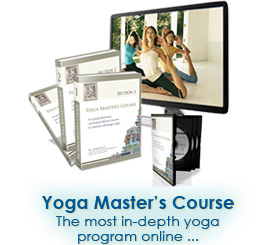[ Excerpt from The Science of Yoga, page 437 ]
Indian thought has recognized the essential expression of individual behaviour as well as that of the culture or society in which they have been conditioned, and has characterized these within the three-fold concept of prakrithi-vikrithi-samskrithi.
Prakrithi is one of those Sanskrit words used in a variety of different contexts. It is commonly recognized, in reference to purusha/prakrithi, as the essential, 'manifest Self', or the individual and their natural needs. In the current context, we derive a little further from this concept and recognize that prakrithi encompasses all of the primal urges which man shares with his animal and reptilian brethren.
These are the powerful, subconscious drives which are part of the DNA programming in the ancient (animal) parts of the brain, which science refers to as mammalian/reptilian complex; all the basic urges for sex, food, power, dominance, aggression, survival, the herd instinct, hierarchical status, play instinct, emotional drives, etc.
By and large, the evolving human being gradually and consciously moves away from its need for these behaviours. As consciousness develops further, higher principles enter the realm of choice. Through awareness and understanding, and the development of control over the mind, the evolving one moves continually toward higher ideals and becomes increasingly able to relinquish the lower in favour of the higher.
Yet, as long as we remain here on earth, in this manifest, human form, these natural drives still play a recognizable part in human behaviour to one extent or another. Natural instinct, though primitive, does serve its practical function in the proper place at the proper time.
Vikrithi describes the state of affairs where prakrithi, the normal and natural drives, has become distorted and perverted. This is characterized by such things as sexual deviancy or deranged eating habits, etc. Though we do see this type of deviance in the animal kingdom, usually they are rare, and such creatures seldom survive for long.
Yet in the human realm, behavioural deviancy happens with regularity and is now even commonplace in many societies. This has been exemplified by vulgarities in sexual behaviour, such as multiple sex partners, pornography, sexual fetishes, prostitution, paedophilia, etc.
Sexual intercourse has been taken out of its natural context of procreation (on the primal level) and sublime spiritual union (as its highest potential), and brought down to the lowest state of sensual gratification.
The modern attitude toward food is the most striking vikrithi, which has permeated nearly all cultures today. This is epitomized in the fast-food industry, and displayed by typical eating habits which have reduced food to a 'pleasurable sensation', diverted from its natural contexts of health and nourishment. Extreme food perversions such as anorexia, bulimia, or gluttony reveal the modern psychology around food which extends well beyond seeing food as nourishment and sustenance.
Samskrithi, in simple terms, means "culture." In this context, when we refer to samskrithi we are suggesting "cultured" -- a refinement, and restraint of primal behaviour.
Samskrithi is that collective ethos of a group of people, a society or a culture that has evolved into a pattern of behaviour which regulates, refines and sublimates, or elevates the basic prakrithi (primal urges) that man shares with creatures (animals) lower than him in the chain of beings.
Samskrithi implies discipline, dignity and a nobility of life. The greatness of a culture is measured by its capacity to restrain, refine, transcend and make sublime the primordial urges of man.
[Continued...]
---------------------
NOTE: This yoga article is an excerpt from The Science of Yoga, an online yoga training program with streaming yoga videos and 600 pages of step-by-step yoga instruction.

"The Science of Yoga is a course worthy of
leather binding and an honored place in the
finest libraries in the world
... It is indeed a masterful work."
Dr. John Michael Christian
AwakeningWithYoga.com
Learn More About
The Science of Yoga Course
|






